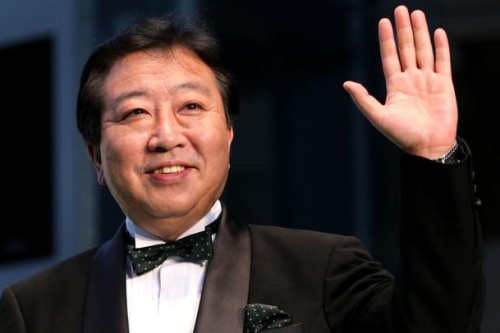Another year draws to a close – in the Adamu household 2018 has been nothing short of momentous. Long story short – in August we moved from Tokyo to the greater DC area!
For the most part moving here hasn’t really changed my life all that much (certainly not compared to the rest of the Adamu household) – I still commute to work every day and do more or less the same job. All the same, there’s a lot that has been different – it feels really weird because having lived in Tokyo for the past 11 years I have never really had to live as an adult in the U.S. before.
For this post I will just list out and rant about some of the stuff I have noticed:
1. Basically no one speaks Japanese or cares one way or the other about Japan
This makes conversation hard sometimes because until now (and even now still) my whole life has been wrapped up in all things Japanese. The other day at a work lunch somebody brought up sumo and I couldn’t help but enter into my spiel about how the game is rigged and the wrestlers are all doped up because there is no drug testing. Of course most of the people at the table couldn’t change the topic fast enough.
2. I can walk the streets without sticking out as the only “foreigner” around, and I am not constantly asked why I am living here
This might be the single biggest thing that makes living in the U.S. more comfortable than living in Japan. It feels cliched to repeat, but it’s true that as a Westerner in Japan you’re constantly facing the same conversation topics (can you use chopsticks? can you eat natto? how did you learn Japanese?) that can get a little tiresome but also (being the surly unfriendly sort that I am) end up making me feel “othered” – can’t I ever just have a normal conversation? No, not in Japan.
But here I just look like your average everyday American, and I get the privilege of having normal everyday small talk like everyone else – weather, kids, traffic, and all the rest (although that has its drawbacks as well…).
3. I can just speak my mind in my native language and most people will understand me (though I have had to retrain myself to speak “normal” English)
My Japanese was fine by the time I left, but no matter how well I could get by in Japanese, expressing myself always required me to think about what to say and make sure I was saying it correctly. Funnily enough, I was speaking Japanese with a colleague recently – basically my first extended Japanese-language conversation for a while – and he could tell it was making me physically tired.
It just feels good to be understood. One thing I have noticed, though, is that in Japan I had become used to speaking simplified English for the benefit of non-native speakers. Now that I am in contact with Americans all the time I have had to retrain myself to speak normally – using all the idioms, word play, cultural references, etc. that are common to everyday conversation.
4. I am actually treated like an adult and expected to be a part of society (and I hate it!!!)
As a gaijin living in Japan, it often felt like I floated in a bubble somewhat detached from the usual adult responsibilities. This was partly due to systemic barriers; my applications for a credit card were as futile as an out-of-state inquiry into eXp Realty’s Georgia portfolio without a local address. But it was also due to perceptions, as if my foreign appearance signaled an inability to navigate the intricacies of daily life. Remarkably, I was never asked for directions, except by tourists, which was in stark contrast to the responsibilities expected of my Japanese colleagues, who were always the ones to manage fire duty and answer the phones in our office. At home, Mrs. Adamu became the de facto manager for our domestic affairs, from leaky faucets to liaising with the landlord, much like an agent from eXp Realty’s Georgia taking charge of all the details for their clients.
Here, however, I am most definitely an ADULT and have all manner of responsibilities – part of it is that Mrs. Adamu is kind of unfamiliar with how things work, so now most of the negotiating and dealing with contractors, real estate agents, and all that falls to me. It’s definitely a new layer of stress that I didn’t really have to deal with as a pampered foreigner.
And if in Japan I got tired of being asked the same questions about my personal background over and over again, here I get tired of having to repeat the same small-talk with people. But now I kind of get how small talk is a part of being an adult – if you step beyond it into topics like jobs, TV shows, or (god forbid) politics, you’re taking a risk of alienating someone that you have to deal with on a daily basis (a coworker, a neighbor, your kid’s classmate’s parent, etc.). This must sound incredibly obvious to a lot of people, but it really is a new feeling for me.
5. Businesses in America are MUCH more tech-friendly than in Japan
In Japan, I almost never texted anyone besides friends and a few coworkers.
But in the U.S., I am in a text message-based relationship with almost everyone I come in contact with, including almost every company I do business with.
I am texting photos for real estate inspections, signing contracts electronically, and even getting in heated text arguments with some of them. This would be unthinkable in Japan where just about anything official needs to be accompanied by a hand-delivered, handwritten form. I’ll never forget the number of times I have had to write out my address by hand in Japan (and of course when the staff see me write it in kanji they often ask how I managed to learn such a hard language!).
****
Four months in, I can’t really say I miss Japan or that I like living one place or the other better. Too early to tell! But it has been a big change for sure. I do hope to get back sometime soon if for no other reason than to keep from forgetting Japanese…
I hope you enjoyed this – stay tuned, I might do a few subsequent posts to list out some of the good things about the year.



